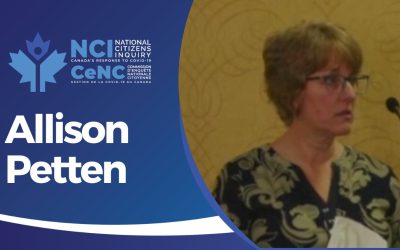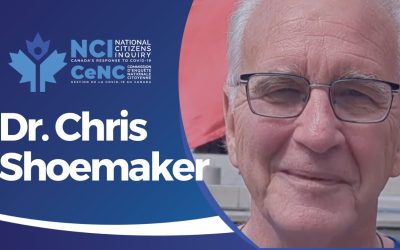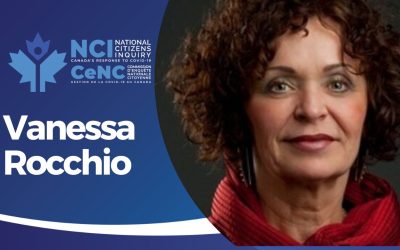
HENRY Friesen regrets that he won’t be here in the year 2053 to see how new advances in science, especially medical science, will affect human life.
But he does forecast a brave and exciting new world.
“The changes I would anticipate in the next 50 years will make the change of the last 50 years seem modest by comparison,” says Friesen, distinguished professor emeritus and senior fellow at the University of Manitoba’s Centre for Advancement of Medicine, as well as the chairman of Genome Canada — a corporation created to spearhead the development of genomics research and its impact in Canada.
“The accelerated pace of discovery is a bit like transportation. We’ve gone from the horse and buggy to space travel,” says Friesen, who is currently with a delegation of scientists, artists, academics and environmentalists accompanying Gov. Gen. Adrienne Clarkson on a state visit to Russia.
“It will be a world with another three billion people, and 70 per cent will live in cities with all of the eco-system pressures that will entail. In science, we’re at the threshold of profound changes and opportunity.”
Geoff Hicks, senior scientist and associate professor at the Manitoba Institute of Cell Biology, says Friesen has been the driving force, “almost single-handedly so,” for the recent transformation of medical research in Canada. “Before, we used to have the Medical Research Council, a centrally administered series of agencies for medical research in Canada,” said Hicks. “What he developed and made happen was the Canadian Institutes of Health Research in Ottawa. There are now 13 research institutes across the country. It’s like the best of what we had previously with the best of the National Institutes of Health in the U.S.,” says Hicks, adding that Friesen was a powerhouse research scientist before he became involved in administration.
“His passion is just unparalleled.”
The world has seen remarkable progress in science and health since researchers James Watson and Francis Crick discovered the double helix structure of DNA — the molecule of life — in 1953, notes Friesen.
Watson, Crick and fellow scientist Dr. Maurice Wilkins received the Nobel Prize in 1962 for “their discoveries of the molecular structure of nucleic acids and its significance for information transfer in living material.” Their discovery paved the way for such things as the Human Genome Project, which has mapped all 30,000 genes in the human genome.
Friesen emphasizes that the field of immunology was primitive when he entered the University of Manitoba Faculty of Medicine a half century ago.
At the time, polio epidemics were raging in Winnipeg and throughout Canada. “Then, in 1958, the first polio vaccine was introduced. When you had a heart attack 50 years ago, doctors put people at rest (in the hospital) for six to eight weeks. Today, the routine is you’re out of the hospital in three to four days if there are no complications,” says Friesen, who began his research career in endocrinology at the New England Medical Center in Boston.
“In the future, medicine will become more predicative, preventive and personal.”
For example, he points out that newborns of tomorrow will have their “DNA fingerprint” analysed.
“That will be their personal signature to medical practitioners that this individual is greatly at risk to certain diseases,” says Friesen, whose discovery of the human pituitary hormone “prolactin” and its role in health and disease — it is a major cause of infertility — and his collaboration with others in the introduction of new therapies have resulted in the effective treatment of tens of thousands of women worldwide.
This will enable physicians to practise preventative medicine well in advance of an illness like cancer manifesting itself in a person’s body, as is most often the case today, he adds.
“The drugs of the future will be designer drugs specific to an individual. It will have consequences for the entire drug industry. There are some people super-sensitive to a drug today because of their genetic makeup, so a drug dose may be excessive,” says Friesen, who has been the recipient of many scientific awards, including a Gairdner Foundation International Award in 1977 and 2001, the McLaughlin Medal of the Royal Society of Canada, the Koch Medal, the Order of Canada (he was promoted to Companion in 2001), and eight honorary degrees. He was inducted into the Canadian Medical Hall of Fame in 2001.
He observes that an entire new branch of science, pharmagenomics, has developed in recent years.
“People are beginning to make the correlation between drugs and genetic makeup,” says Friesen, who is also a Foreign Associate of the National Academy of Sciences, USA. He points out that each year in Canada, several billion dollars of hospital costs go toward caring for people with serious drug reactions, some of which are fatal. Drugs designed to match a specific individual’s genetic makeup will help reduce, if not eliminate entirely, this pressing problem.
As with many others, he believes “the promise” of stem cell research is very great — although one does have to realize, Friesen says, that the difference between “hope” and “hype” is only one letter. He notes that the therapeutic effects of stem cell research in mice with spinal cord injuries has been encouraging.
“Great caution, though, has to be exercised to ensure that any cells implanted are safe in the long term,” says Friesen.
He contends it is important that Canada plays a leadership role in genomics in the new millennium, because that will create advantages for Canadian researchers.
“The health-care system should not be viewed simply as a provider of health care for Canadians, but also as a generator of wealth for Canada. The penetrating insight of Watson and Crick allowed them to see the transfer of information at the genetic level. We now have the opportunity to be creative and capitalize on what could be the on-going results. We’re limited only by our imagination and our willingness to capture the opportunities available to us.”


